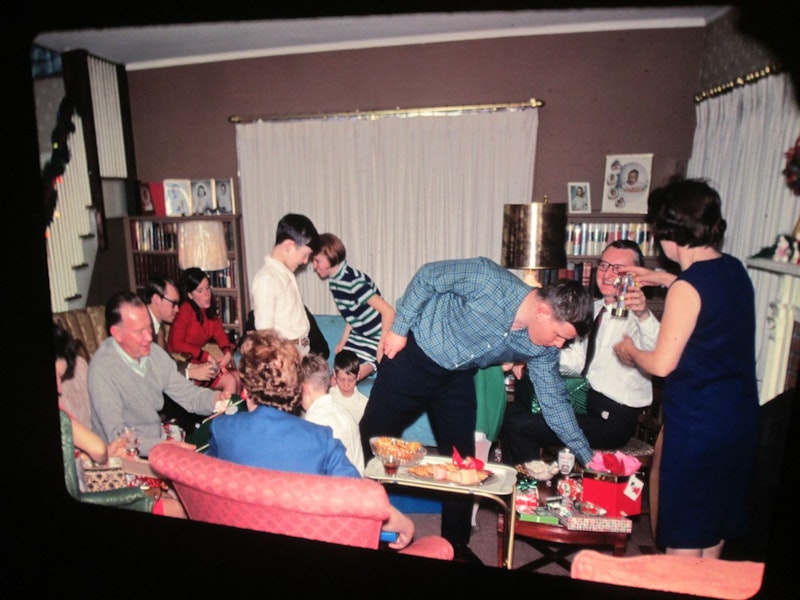Today, with Easter arriving on April 9th, my mind, quick as the musician Blood Trust (playing at Manchester’s CODE on that night), goes to Richard Yates’ classic 1976 novel Easter Parade. Yates is out-of-fashion again, after a brief renaissance when his Revolutionary Road (1961) was adapted for movie screens, an instance where the film (2008) was nearly as good as the book, with a Top 5 performance from Leonardo DiCaprio, equaled by Kate Winslet, a creepy turn by Michael Shannon and excellent bit role for Kathy Bates. As an example of Yates’ long-ago “cancellation,” none of his books were assigned in any of my high school or college English classes. Like many friends, I was well-read (not so uncommon in the early-1970s) and his name never came up.
My family barely notices the religious holiday, which isn’t surprising since my wife and I never subjected our two boys to church services, although they did receive plump Easter baskets, and a plastic egg hunt (dollar bills enclosed) that lasted about five minutes, given that our NYC condo, while nifty, didn’t have the acreage of the contests from my youth on Long Island, a grueling (to me) ritual held in Heckscher Park. I rarely had much enthusiasm for the hunt—once I did spelunk a foul rotten egg from near the duck pond—which, on two occasions nettled my mom (who didn’t go to church, a protest against the Catholicism she hated growing up; not that that prevented the baptism of her five sons) because it exhibited a lackluster embrace of competition. As if I was going to list on my future college resume that I “won” an egg hunt as a 10-year-old. Mom was funny and eccentric that way, and that’s meant with affection, even if we traded barbs on rare occasions.
My Uncle Pete, on the other hand, was all-in on Easter, and a semi-devout Catholic. During World War II he was a chaplain’s assistant overseas, and not many years after he blessedly returned in one piece, married my Aunt Peggy, who’d arrived from County Mayo in 1949, and her melodious Irish accent remained until she passed away. Peg wasn’t as preternaturally jovial as Pete, but if you listened closely, her side-glances were priceless. A card in her own right.
The picture below is from Pete and Peggy’s Douglaston, Queens rambling home, one Easter many decades ago. The party, a little deceiving for a few scattered presents on the table, sure beat egg hunts. Pete, with a trademark smile (and wearing a tie) and Peg are on the right, while my dad is on the left. I’m standing with my sister-in-law Mary, just above my cousins Phil and Steve, while Uncle Joe’s son Jerry is reaching for the Lipton’s onion dip. Also on the left, next to Dad, are my brother Doug in Elvis Costello glasses before Elvis Costello was Elvis Costello, and Mary’s sister Barbara, a lovely and effervescent presence in the family. Pete and Peg’s third child, Bernadette, is represented only by photos of her First Communion on the bookcase; their second daughter Veronica would come along a few years later.
More important than the holiday, though, is the scene it represents in mid-20th century middle-class America. The lamp with a plastic cover. The rickety plastic table holding chips and cheese. A just-snapped Polaroid on the right; the religious icons. The cocktails were Manhattans or martinis, the beer (for those at least close to 18, was Rheingold) and the kids fooled around while the parents discussed the issues of the day—without rancor, I’ll add, despite diverse views on Vietnam, commies and unions. The older generation, the Depression/WWII kids, was still in charge (Pete’s 45, my dad 49 and Joe was 50) and set the rules, even if never very severe. My brother Doug is wearing a tie for this function; that’d all change in a year or so when he had shoulder-length hair and didn’t do much to hide his controlled-substance consumption. The Pepsi Generation and Tony the Tiger took over.
Look at the clues and tell me what year it is: the Indo-Pakistani war begins; Fidel Castro announces that Che Guevara has left Cuba; an elderly (but not as old as Biden or Trump) Charles de Gaulle wins reelection in France; the Astrodome opens in Houston; Charlie Brown’s on the cover of once-influential magazine Time; Casey Stengel announces his retirement; My Mother the Car debuts on NBC; the Gateway Arch is completed in St. Louis; the Pillsbury Doughboy is created; Mike D. is born and Alan Freed dies; Jean-Luc Godard and Anna Karina make Alphaville and Pierrot Le Fou together; The Beatles are still touring and selling out stadiums around the world; Sandy Koufax refused to pitch on Yom Kippur; and Bonanza is the top TV show.
—Follow Russ Smith on Twitter: @MUGGER2023

